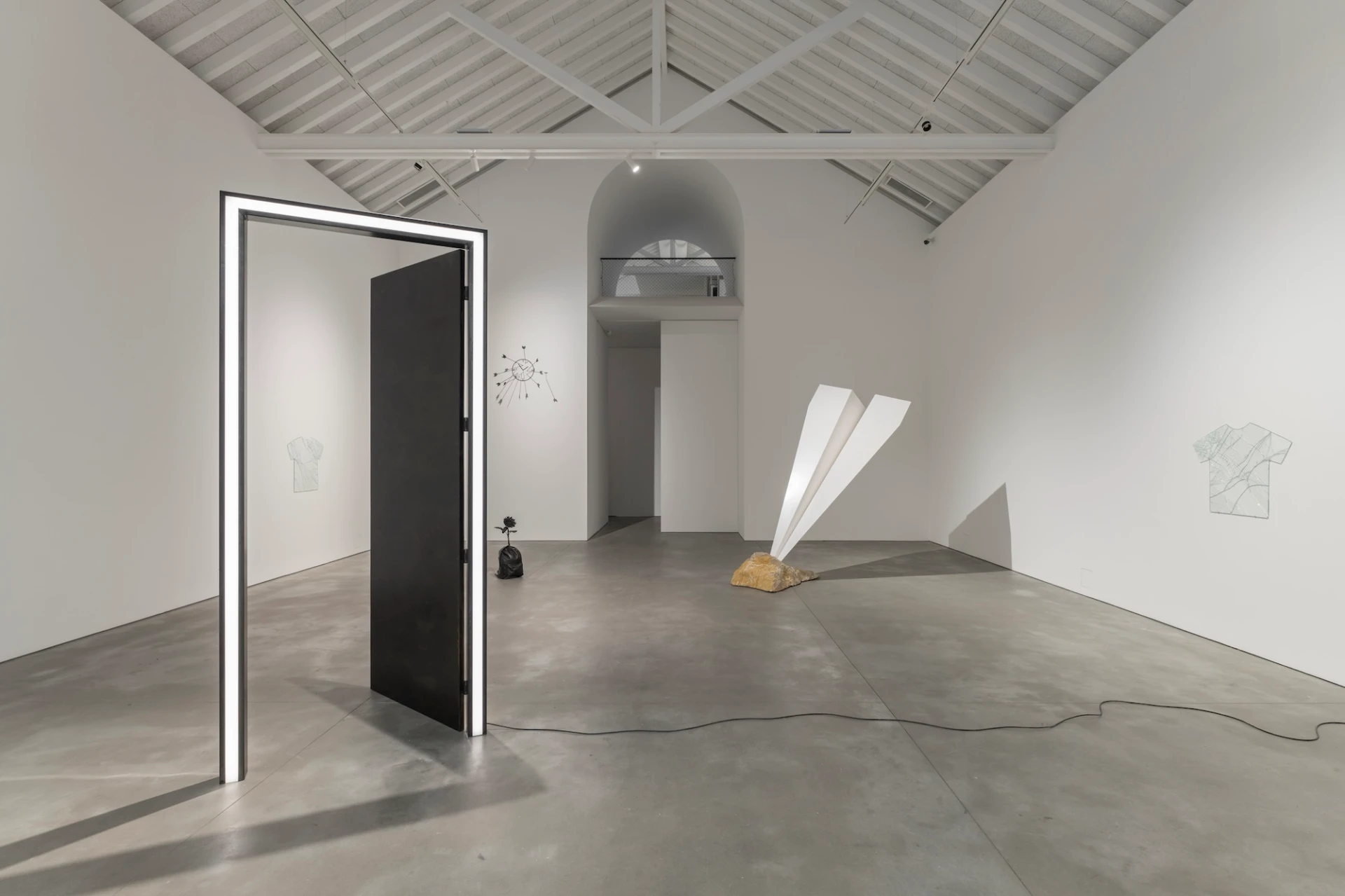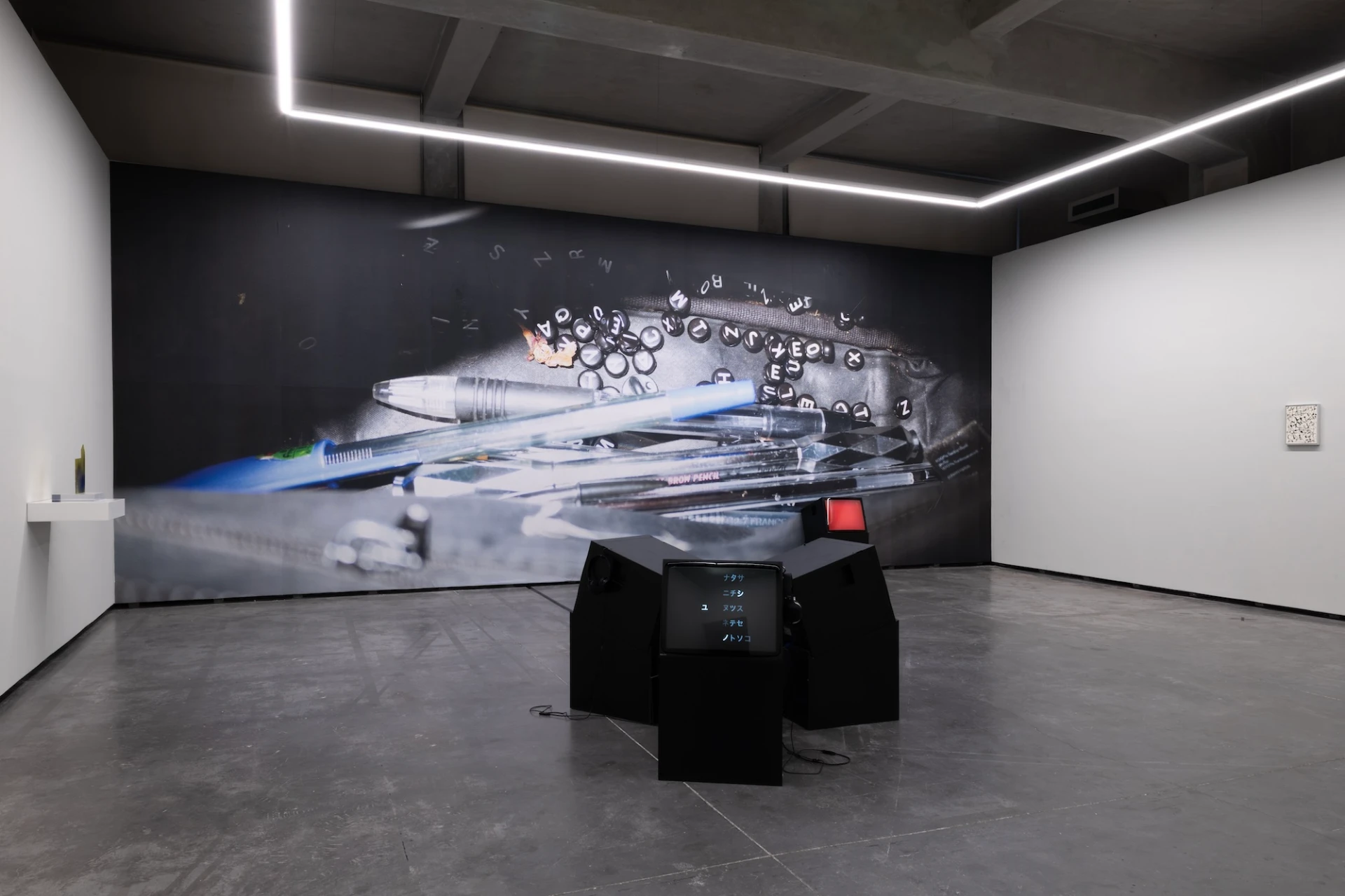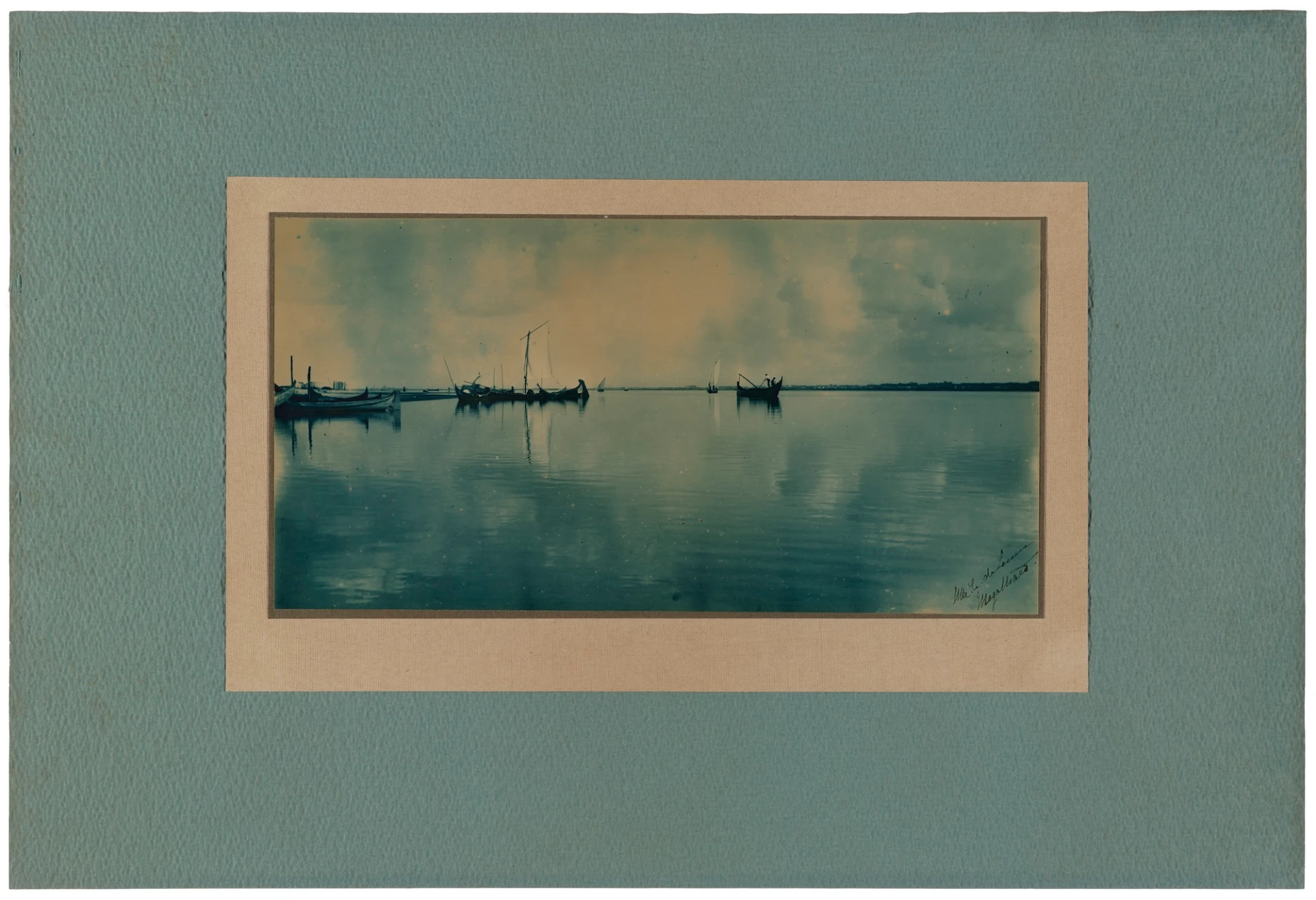article
Despite everything, we shall continue
"The reluctant gardener who permeates this exhibition is not a triumphant hero, but rather an almost tragic figure—someone condemned to persist in a work whose harvest he may never see. It is, however, precisely this obstinate insistence that gives shape to a distinct hope: not an immediate and luminous hope, but a subterranean, slow force that feeds more on the gesture than the result."
Curated by Sofia Lemos, Reluctant Gardener occupies the Fidelidade Arte space as an invitation to a sensorial and cognitive journey, reexamining the relationships we establish with nature and the dialogues it maintains with culture. Bringing together works that explore the passage of time, the exhibition constructs immersive environments that resonate with pressing ecopolitical issues. Sculpture, installation, photography, video, and sound coexist in a dialogue that emerges and contaminates, like a garden in constant mutation—simultaneously cultivated and untamed.
The metaphorical figure of the Reluctant Gardener serves as a guiding thread: someone who, between hesitation and persistence, seeks to reconfigure the narratives of our origins, questions the worlds we choose to cultivate and the natures we choose to preserve[1], but also those we allow to degrade or disappear. A kind of guardian who seems not to act impulsively, who resists imposing a single possible order on the world he cares for. With a reluctance that is, ultimately, an act of resistance against futures already written.
In the exhibition, a waiting period seems to take hold—not as an empty interval, but as fertile ground where new narratives can germinate and possible futures can be outlined. It is in this interval that Lemos, through the selected works, experiments with new ways of inhabiting and sharing, of cultivating relationships, of imagining alternative forms of coexistence that challenge fixed patterns and awaken different environmental consciousnesses. The rhythms that guide us—germination, decline, regeneration—are not merely metaphors for natural cycles, but living reminders that time is measured both in the visible and the imperceptible, in what emerges to the surface and in what remains latent. The exhibition rejects haste and linearity, allowing multiple temporalities and sensibilities to coexist, as in a garden growing in unpredictable directions. By inviting us to linger, to feel what is born but also what is undone, it reminds us that looking at what is lost is already an act of resistance.
We enter the exhibition, walking through what appears to be rubble. Beneath our shoes, we hear the dry sound of fragile shells shattering—a carpet of mollusks, a dead ground, the mineral memory of a once-living ecosystem (Muscle Memory (2,5 tonnes). Further on, the air changes: a flower resists in water (Sem título / Untitled, 2024), we imagine the smell of what burns (How fire thinks, 2019), and the memory of birds that have flown away echoes (It’s always somebody’s bones, 2024). Flowering branches rise like immobile scenography that seems like symbols of resistance (Granada Granada (Magnolia, Granado), 2023), a surface reflects back (Days of Inertia, 2024), a suspended object vibrates relentlessly (Tea Leaf Paradox, 2024). We surround what is destroyed and what still resists, moving through spaces of suspension where perception oscillates between mourning and astonishment, faced with elements that condense the tension between fragility and persistence.
All of this creates a philosophical device that makes us think of the garden not as an intact refuge, but as a territory in pain, a field that builds itself not despite destruction, but from it. Living and wounded matter, a body exposed to winds and devastating forces that blur the boundaries between death and life, end and beginning. In a poetic and political exercise, Lemos creates a language that is at once delicate and incisive, intimate and collective. And, in the politically, environmentally, and socially fractured landscape[2] in which we live, it reminds us that this garden—and perhaps all others—offer us space to imagine our place in the world, space to shape the collective imagination, that which we wish to preserve, thus making the exhibition fertile ground for conscious ideologies to take root, so that we can consider the path we wish to chart in the future, ecologically and politically.
The works of Álvaro Urbano, Ariel Schlesinger, Nina Canell, and Rei Naito intersect here like different species in the same conceptual habitat. Urbano transforms architecture through a kind of scenography of spatial narratives inhabited by memories; Schlesinger reveals poetic tensions related to destruction; Canell works with constantly changing matter, exploring invisible forces and lasting processes; Naito evokes the almost imperceptible, creating environments of profound contemplation. Together, they cultivate symbolic landscapes that seem to gather archaeological remains of a future already consumed. Each element does not simply illustrate or mirror nature. They are fragments, collected or reinvented, that confront us with our own reluctance to assume the role of persistent caretakers. Each work seems to germinate into the next, moving between vague impressions, moods, and operatic intensities, like the time of the garden. In cycles of life and decomposition, revitalizing our perception of the world's rhythms and syncopations.
Regarding the exhibition, Sofia Lemos evokes the expression "Portugal, um jardim à beira-mar plantado"[3] (Portugal, a garden planted by the sea) to cast a critical eye, revealing the layers of conformism that permeate Portuguese colonial discourses and the passivity in the face of the rising tides of nationalism, so evident in the recent victories of the far right in the country. This reflection leads us to view Reluctant Gardener not as a refuge for immediate consolations or simple answers, but as an invitation to a deep and critical investigation into the complexity of the present. The reluctant gardener who permeates this exhibition is not a triumphant hero, but rather an almost tragic figure—someone condemned to persist in a work whose harvest he may never see. It is, however, precisely this obstinate insistence that gives shape to a distinct hope: not an immediate and luminous hope, but a subterranean, slow force that feeds more on the gesture than the result. This gardener, like Sofia Lemos and every visitor willing to delve into this reflective journey, knows that the regeneration of nature—and, by extension, of culture and society—requires time, space, and resilience. It demands the courage to step back, to let go of the imposition of accelerated rhythms and rigid geometries on the organic and unpredictable growth of the world. Caring is also an act of surrender and permission, a profound belief that, even in an exhausted world marked by crises, the possibility of the unexpected remains latent, of the intimate miracle of renewal born of patience and endurance. And from this awareness, essential questions arise: how do you care for something that seems lost? How do you water land that doesn't respond? How do you extinguish the fire we've lit?
The answer must be the gesture—repeated, always repeated—that converges, perhaps, in care itself. Continuing to water the wreckage, sweeping away the ashes, in the hope that something will regenerate. It is trusting that, even in the battered soil, there is life that resists.
Reluctant Gardener is about memory, energy, and possibilities. A reminder that every shard beneath our feet is a living archive—a testament to a collapse, but also, hopefully, a harbinger of regeneration, of an opportunity to do better.
There are roots that await only the minimum amount of moisture to awaken. Let's not let the heat of the fire condemn them to sterility.
This exhibition is the ninth installment of the Território cycle – a partnership between Fidelidade Arte and Culturgest – and can be visited until September 5, 2025.
[1] Folha de sala, pág 4.
[2] Folha de sala, pág. 4
BIOGRAPHY
Maria Inês Augusto, 34, has a degree in Art History. She worked at the Museum of Contemporary Art (MNAC) in the Educational Services department as a trainee and for 9 years at the Palácio do Correio Velho as an appraiser and cataloguer of works of art and collecting. She took part in the Postgraduate Programme in Art Markets at the Faculty of Social Sciences and Humanities of Universidade Nova de Lisboa as a guest lecturer for several editions and collaborated with BoCA - Bienal de Artes Contemporâneas in 2023. She is currently working on an Art Advisory and curatorial project, collaborating with
Teatro do Vestido in production assistance and has been producing different types of text.
ADVERTISING
Previous
agenda
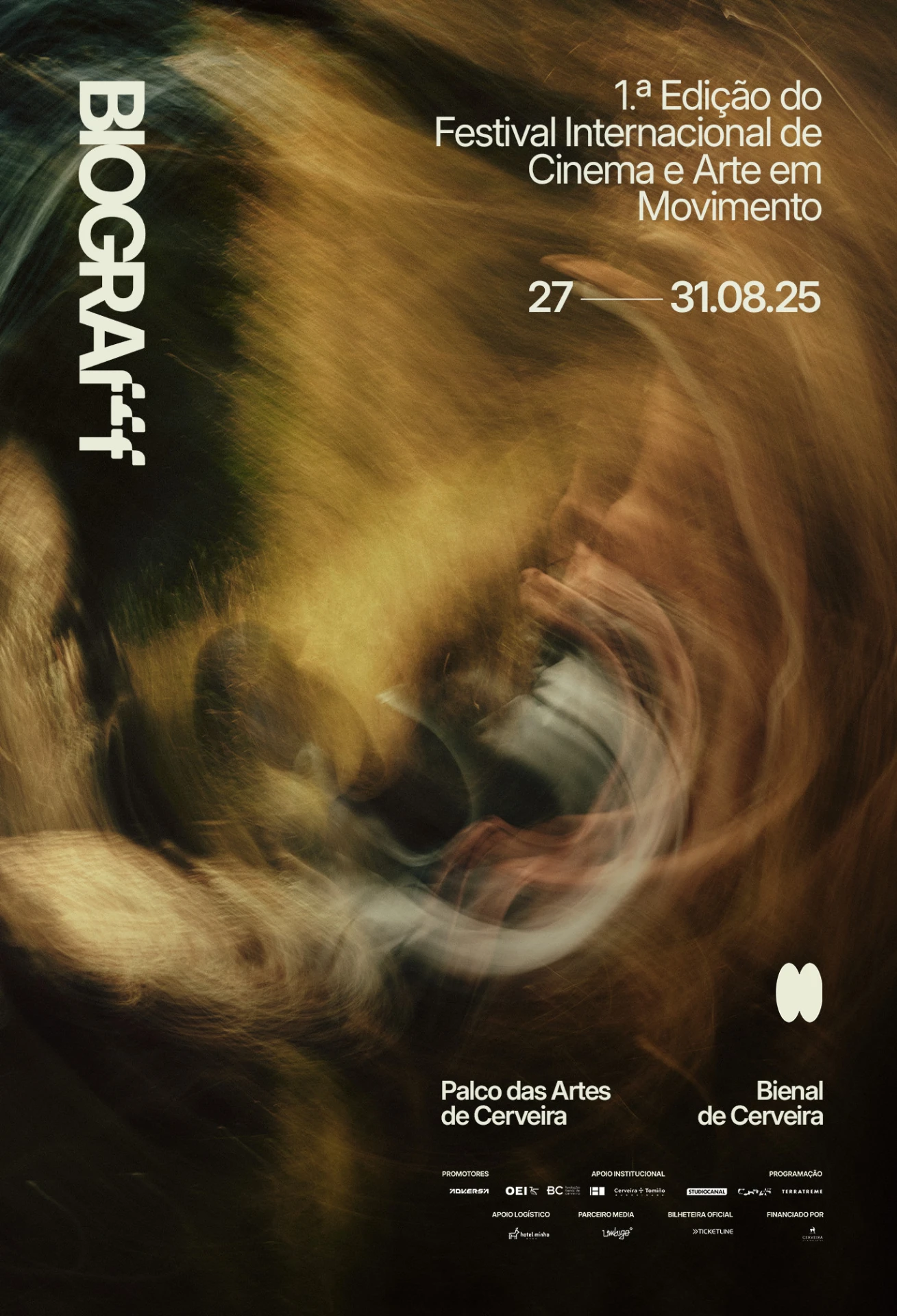
22 Aug 2025
BIOGRAF - International Film and Moving Arts Festival kicks off on 27 August in Vila Nova de Cerveira
By Umbigo
Next
article
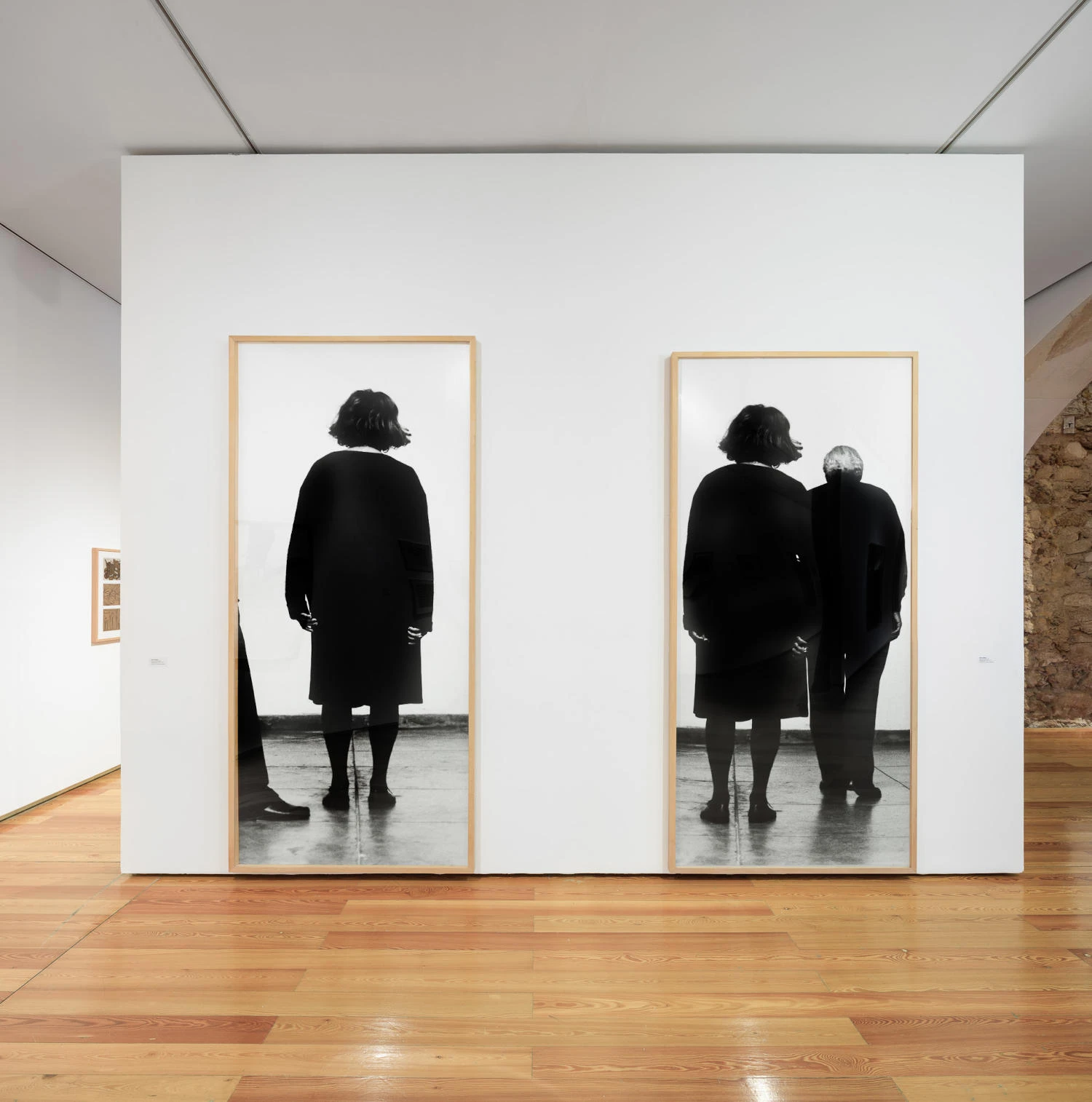
26 Aug 2025
The cause and chance
By Tomás Camillis
Related Posts
